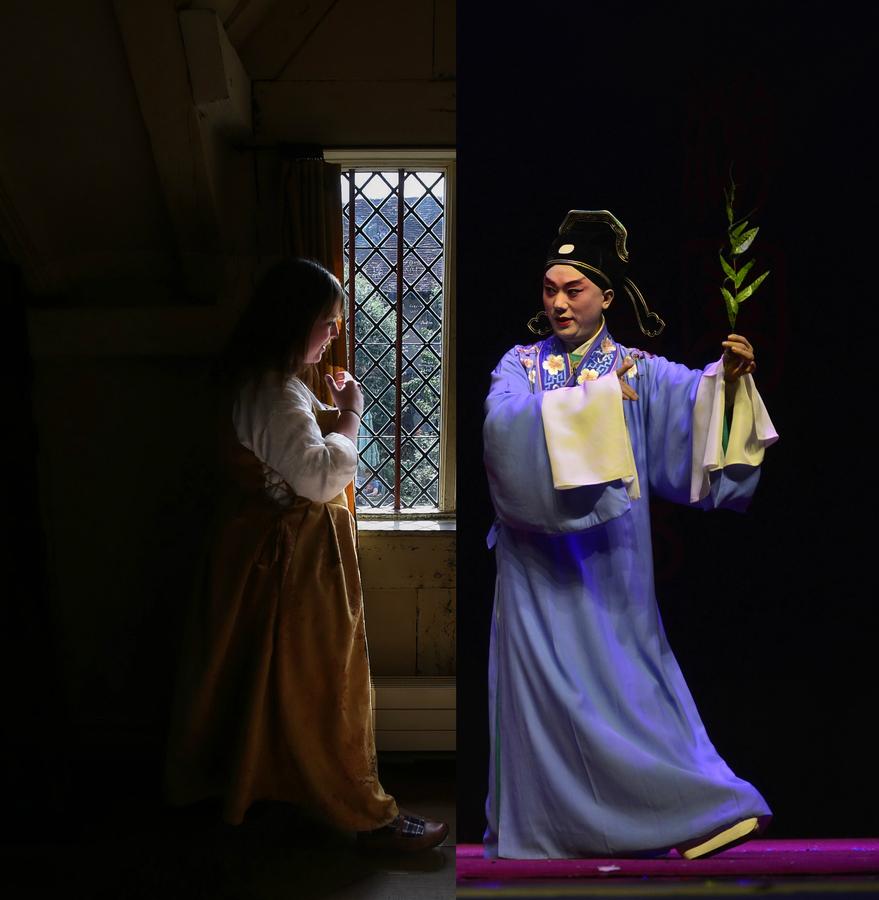







 |
|
Combination photo taken on July 21, 2016 by Han Yan (L) shows an actress performing "Romeo and Juliet" of British writer William Shakespeare in Stratford-upon-Avon, Britain and taken on Oct 11, 2016 by Zhou Mi (R) shows an actress performing "The Peony Pavilion" of Chinese playwright Tang Xianzu in Fuzhou of East China's Jiangxi province. [Photo/Xinhua] |
The play premiered in Leeds in July. The response was tremendous and the show was staged eight times at the Edinburgh Festival Fringe, according to Ansell.
"This sort of project will start to open the flood gates," Ansell said. "China and the rest of the world are becoming closer."
Ansell believes that as China's status in the world grows, so does knowledge of its culture, art, cooking and philosophy.
"Great [Chinese] writers and artists will start to spread across the world," Ansell said. "It's great art, but we just don't know about it."
This is a view shared by Zhou Yude, former president of the National Academy of Chinese Theater Art.
"One hundred years ago, such cultural exchange was beyond the imagination," Zhou said.
At that time, China was controlled by warlords, while large areas of Chinese territory were seized by foreign countries as concessions. In spite of its 5,000-year culture, the country lagged behind western countries in economy, military, science and technology.
"In contrast, China is now world's second largest economy, and has dialogue with western countries on an equal footing," Zhou said.
Today, more than 10 versions of "Peony Pavilion" have been performed around the world. "Starting from 1998, the opera 'Peony Pavilion' was put on stage in Vienna, Paris, Rome, London and San Francisco," said Zou Yuanjiang, vice president of Tang Xianzu Studies at the Chinese Opera Society.